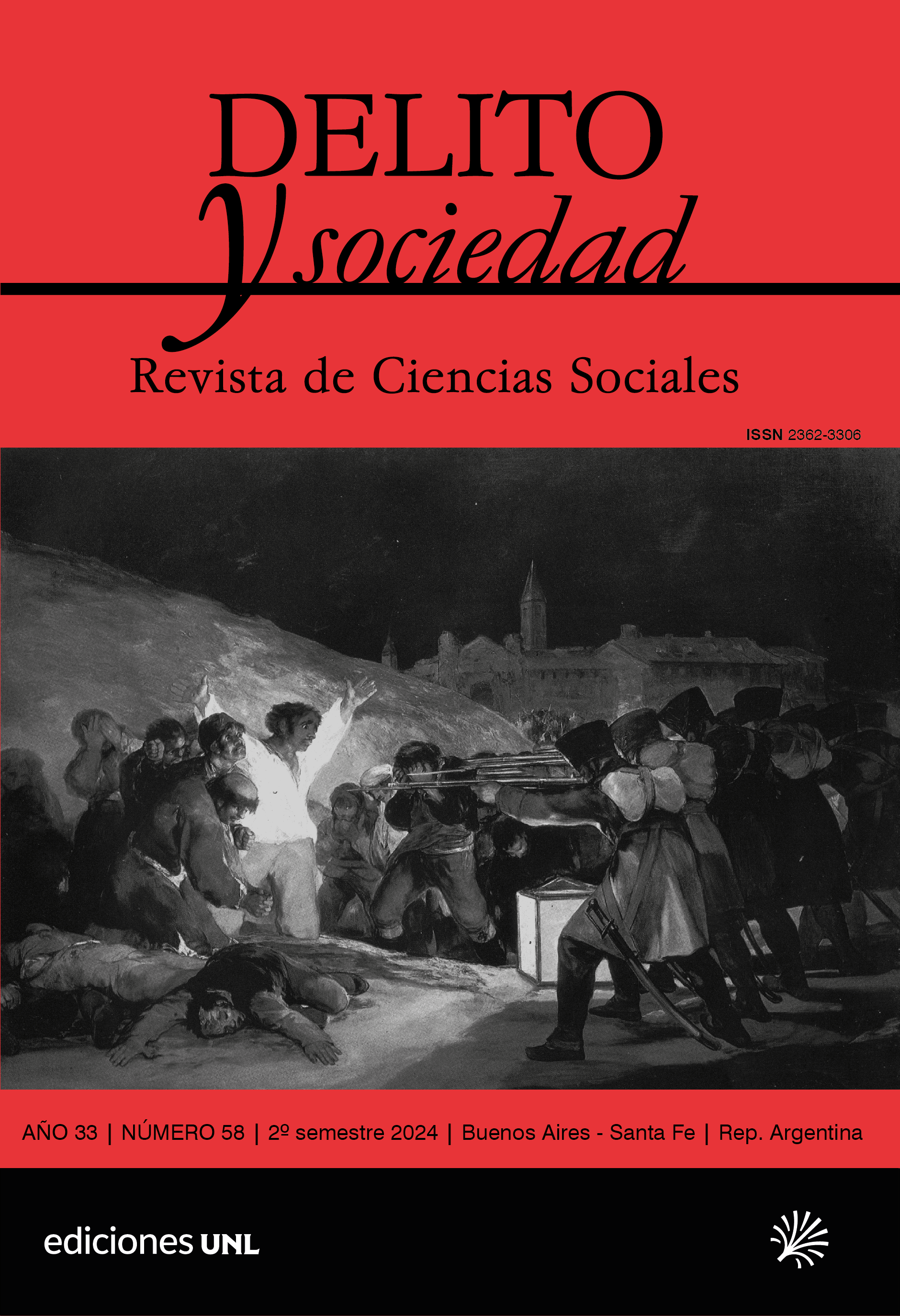aca-culos», «blanditos», «parras» and «compañeros»: Counterparts to hierarchical relations in the National Police of Uruguay
DOI:
https://doi.org/10.14409/dys.2024.58.e0123Keywords:
police, police unions, Uruguay, hierarchy, holismAbstract
The police is a hierarchical and vertical institution. This mantra is taught in police training spaces, circulated among offices, written into regulations, and repeated time and again when a superior issues an order to a subordinate. The maxim is true, or at least it expresses the hierarchical principle that governs most of the social relations within the policing world, although not all of them. Employing an ethnographic methodology, this paper scrutinizes the police hierarchical relationship until identifying its imperfections, its fissures, its points of escape. I describe some of the modalities in which police officers evade, suspend, and/or challenge the hierarchical relationship with their superiors. To designate these modalities, I draw on three native categories that circulate within the Uruguayan police world regarding certain police typologies: the «saca-culo», the «blandito», and the «parra». I add a fourth category that completes the inquiry: «compañeros». This last modality stems from the process of police unionization in Uruguay and is distinguished from the other three by its collective nature. The article documents how police unionism challenged police hierarchy and reconfigured the way Uruguayan police officers relate to each other.







